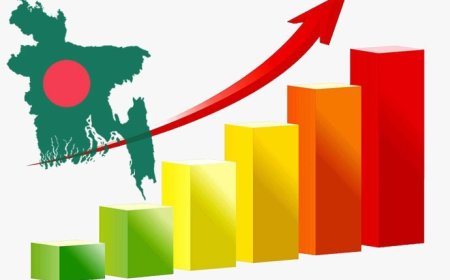Revised policy on loan defaults
Under the revised policy, loans unpaid for three months will be classified as substandard. If the non-payment extends to six months, the loan will be categorized as doubtful. Loans remaining unpaid for twelve months will be designated as bad or loss loans. Banks will enforce the new defaulted loan policy starting next month.

Banks will introduce a new loan default policy starting next month. Under this policy, loans that remain unpaid for a period ranging from three months to one year will be classified under different default categories.
Previously, various types of loans could remain unpaid for up to two years before being classified as non-performing loans (NPLs). The new policy has reduced this timeframe by half.
Industry experts have raised concerns that this policy could result in a rise in non-performing loans across the banking sector.
According to the latest figures from Bangladesh Bank, as of December last year, non-performing loans had increased to nearly Tk 3,500 billion, accounting for 20 per cent of total disbursed loans.
Under the revised classification system:
-
Loans unpaid for three months will be deemed substandard.
-
Loans unpaid for six months will be categorized as doubtful.
-
Loans unpaid for twelve months will be classified as bad or loss loans.
However, business leaders have requested a six-month postponement of the policy's implementation, citing worsening law and order conditions and geopolitical uncertainties. Several business associations have engaged in discussions with Bangladesh Bank, while others have formally proposed delaying the policy.
Business organizations argue that, given the current economic climate, implementing this policy could lead to many businesses defaulting on loans, placing several industries under financial strain.
Concerns from Business Organizations
The Dhaka Chamber of Commerce and Industry (DCCI) recently sent a letter to the governor of Bangladesh Bank, outlining key economic challenges affecting entrepreneurs' ability to repay loans. These challenges include:
-
High loan interest rates
-
Rising inflation
-
A shortage of foreign exchange reserves
-
Exchange rate volatility
-
Deteriorating law and order conditions
-
Overall economic uncertainty
DCCI emphasized the need for greater flexibility in loan repayment deadlines. DCCI President Taskin Ahmed stated that the new policy is scheduled to take effect on April 1. However, due to current economic difficulties, both large enterprises and small and medium-sized industries are struggling to meet their repayment deadlines. DCCI has proposed delaying the policy’s implementation by six months to benefit businesses of all sizes.
The Oil Mill Owners’ Association has also submitted a letter emphasizing that none of its member companies have ever defaulted on loans or requested interest waivers in the past 50 years. However, due to the COVID-19 pandemic and the Russia-Ukraine conflict, global inflation and foreign exchange rate fluctuations have severely impacted this import-dependent industry, leaving many businesses struggling.
Additionally, during the tenure of the previous government, some businesses allegedly leveraged political influence to secure preferential banking facilities, which weakened the financial stability of several banks. As a result, legitimate businesses now face significant financial challenges. The Oil Mill Owners’ Association has urged Bangladesh Bank to delay implementing the new policy.
Additional Provisions in the Policy
Currently, loan default classification varies based on loan type and sector. Borrowers are granted a grace period of up to one year before a loan is classified as defaulted.
-
For cottage, micro, small, and medium enterprises (CMSME), loans become defaulted if unpaid for nine months beyond the maturity date.
-
Agricultural loans allow up to 15 months of non-payment before default classification.
-
Industrial loans, including working capital, term, and demand loans, are categorized based on different timelines.
Under the new policy, all loans will be considered overdue immediately after the repayment deadline.
Bangladesh Bank has also increased provisioning requirements for non-performing loans. Since loan provisions are deducted from bank profits, there are concerns about reduced profitability.
-
Standard loans will require a 1% provision of the loan balance.
-
Special Mention loans will require a 5% provision.
-
Loans overdue by two to three months will be classified under the Special Mention category.
Additionally, the provisioning requirements for non-performing loans will be:
-
Substandard loans: 20% provision of the loan balance.
-
Doubtful loans: 50% provision of the loan balance.
-
Bad or loss-classified loans: 100% provision of the loan balance.
Under pressure from politically connected businesses and large defaulters, the former Awami League government had relaxed loan classification policies. Banking professionals now warn that the new policy could double the volume of classified non-performing loans. The higher provisioning requirements are also expected to negatively impact bank profitability.
According to Bangladesh Bank’s latest data, as of December, non-performing loans totaled Tk 3,457.65 billion, up from Tk 2,849.77 billion in September—an increase of Tk 607.87 billion in just one quarter (October-December). At the end of December, 20.20% of total disbursed loans across the banking sector were classified as non-performing. The full extent of non-performing loans has become more apparent following the transition to the interim government.
What's Your Reaction?





















































































